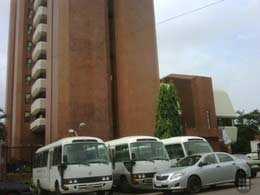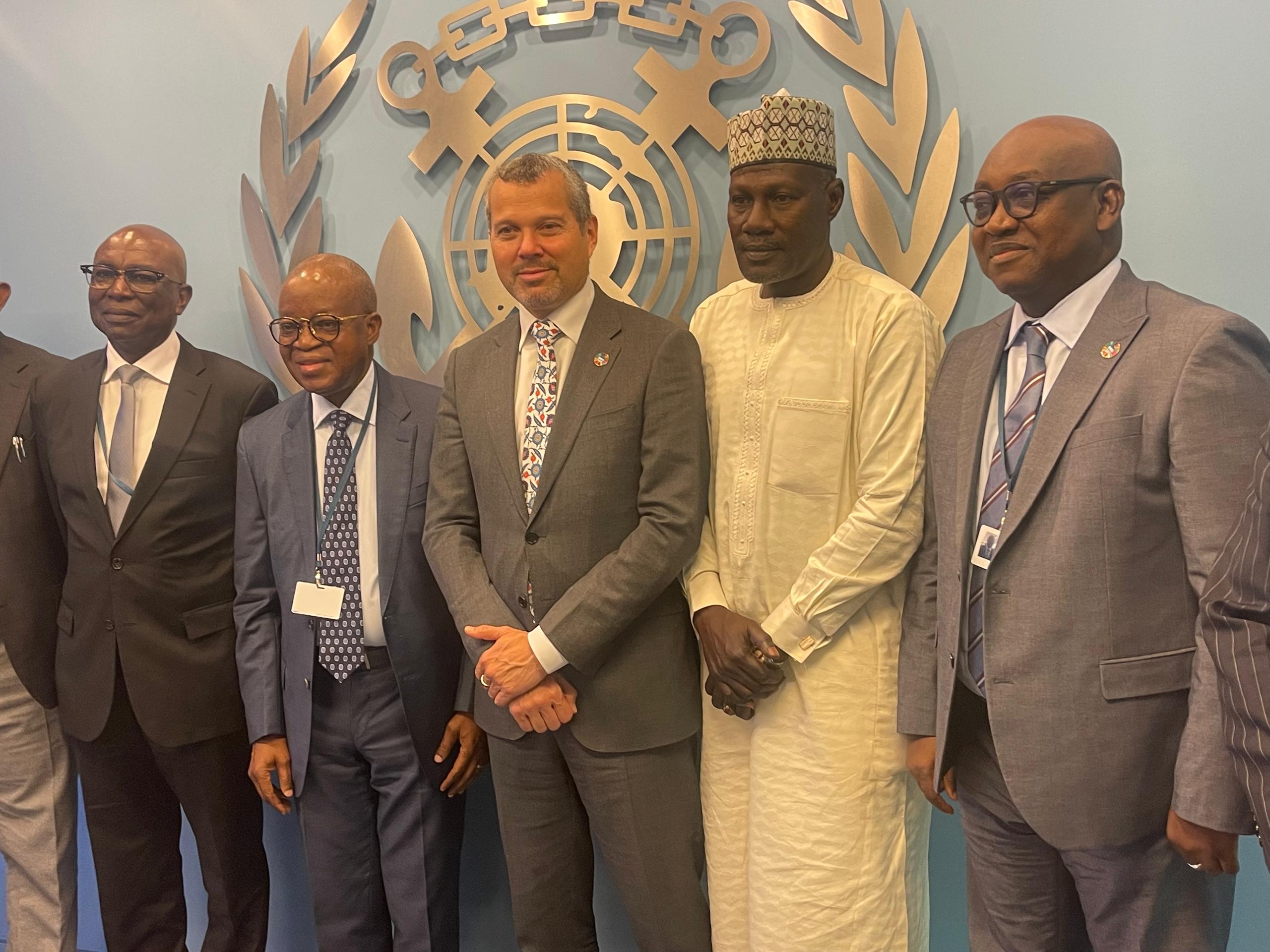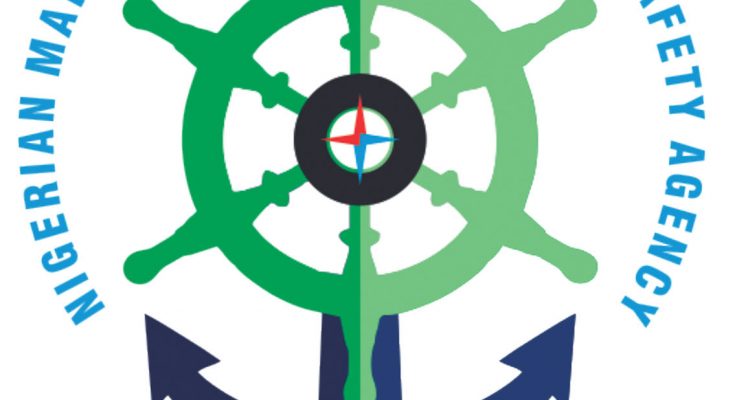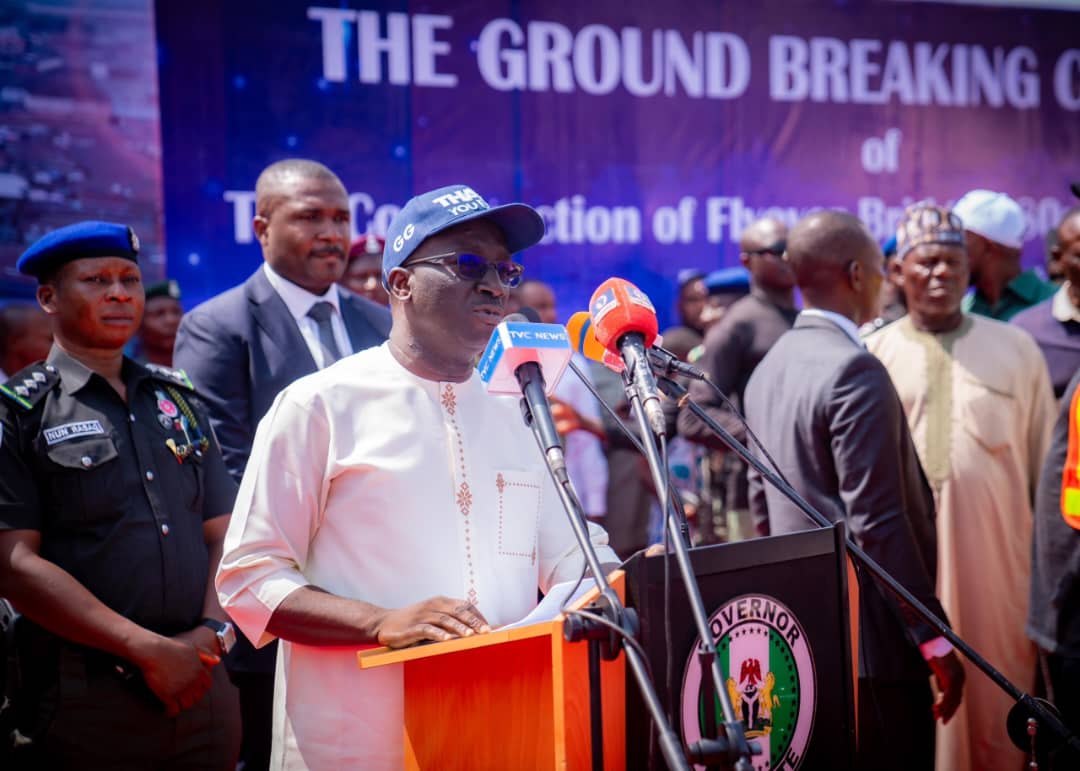Maritime
Nigerian Shippers Council To Be Scrapped By FG?

There are strong indications that the Federal Ministry of Transport may be considering transmuting one of its department into becoming a commercial regulator for the Nigerian maritime industry, even as there have been reports of the ministry considering a total scrapping of the regulatory agency presently clamoring for the responsibility; the Nigerian Shippers Council.
This revelation was made known yesterday at a one day ‘stakeholder’s clinic on arbitrary shipping charges’ by a member of the Presidential Monitoring Committee on Port Reforms, Prince Olayiwola Shittu. The program was hosted by the Nigerian Shippers Council in collaboration with Akabogu and Associates.
 Prince Shittu revealed that at a top brass meeting he had attended in Abuja on Monday, there were plans of the ministry of transport bringing one of its departments to act as a commercial regulator for the ports because the Nigerian Shippers Council is presently perceived as a toothless bulldog.
Prince Shittu revealed that at a top brass meeting he had attended in Abuja on Monday, there were plans of the ministry of transport bringing one of its departments to act as a commercial regulator for the ports because the Nigerian Shippers Council is presently perceived as a toothless bulldog.
Speaking, Prince Shittu who is also the president of the Association of Nigerian Licensed Custom Agent (ANLCA) said that “the problem of the port is defying solutions as a result of the ministry of transport interfering in the processes that will solve the problems of the port, this also came to the fore yesterday when we discovered in a meeting in Abuja that all efforts to make the shippers council a commercial regulator in the industry today is being thwarted by the civil servants in the ministry of transport”
Continuing he said “The ministry also came with a decision that a department in the ministry will serve as the regulator for the industry, imagine them seating in Abuja and regulating charges paid in Lagos, it is the government itself that is making it difficult for us to get to where we are going to”
“All the laws made have always made sure that shippers’ council does not have the teeth to bite and the icing on the cake is the recommendation that it should be scrapped” Shittu revealed.
The stakeholders’ clinic which held today was chaired by a chairman frontline maritime consultant, Otunba Kunle Folarin was declared open by the Executive Secretary of the Nigerian Shippers’ Council, Capt. Adamu Biu.
The clinic which was well attended by a cross section of maritime players including, freight forwarders, maritime lawyers, importers and exporters, however did not have any representations from the shipping companies and terminal operators.
Stakeholders at the clinic took turns to condemn the arbitrary and duplicated charges that are being levied on them at the port by the terminal operators and shipping companies, even as they have also called on the federal government to empower the Nigerian Shippers Council to become the commercial regulator of the ports.
In her address, Shippers’ Council’s Director of Commercial Services, Mrs Dabney Shall-Holma said that the council is set to take the bull by the horn in terms of checkmating arbitrary charges by shipping companies and terminal operators as enshrined in the Act setting up the agency.
She confirmed that the organization has already benchmarked all charges that ought to be collected by all shipping companies and terminal operators at the ports and that this was carried out with the knowledge of all the parties concerned. “This time I think something is going to be done” she assured
She charged Nigerian shippers and their representatives to come to the council with any information on Cargo Data Declarations (CDD) as all shippers in Africa are seating together to criminalize the use of the tool by shipping companies.
Identifying some of the arbitrary charges that are currently being collected at the port, National President of the National Association of Government Approved Freight Forwarders (NAGAFF) Mr. Eugene Nweke in his presentation itemized them saying “the continuous paying of the 7% port charge is arbitrary, paying of VAT is a duplication and is exploitative, Terminal Handling charges which was formally N35, 000 is now N60”
Eugene said that the transfer charges which is as a result of the transferring of containers is an imposition and a criminal act committed by terminal operators and shipping companies, “we even pay for their lack of holding bays and system breakdowns” he said
Resolutions of the meeting was read out by the chairman, Otunba Kunle Folarin that freight forwarders must synergize and speak in one voice through the Council for the Regulations of Freight Forwarding in Nigeria (CRFFN) and the shippers council has to be empowered as the commercial regulator of the ports.
Maritime
Maritime Governance: Minister Deposits Three Accession Instruments At IMO

The Honourable Minister of Marine and Blue Economy, Adegboyega Oyetola has deposited three Instruments of Accession to IMO Conventions signed by President Bola Ahmed Tinubu with the global body.
He did so on Tuesday, at the headquarters of the International Maritime Organization (IMO), which acts as the repository for these conventions.
This move, coming a few weeks after Nigeria declared its intention to contest election for a seat on the IMO Council, is expected to enhance Nigeria’s maritime governance and align its practices with international standards, promoting maritime safety, security, and environmental protection.
Shortly after the presentation ceremonies, Oyetola informed the IMO Secretary General, Arsenio Dominguez, of the President’s commitment to ensuring that Nigeria aligns with international maritime standards regarding maritime safety, security, and sustainable marine practices.
ALSO READ: NNPCL Launches Utapate Crude Oil Blend, Eyes Production Expansion In 2025
He also called on the IMO to extend technical support to Nigeria.
In his words, “These instruments, duly acceded by His Excellency, the President of the Federal Republic of Nigeria, signify Nigeria’s continued commitment to aligning with international maritime standards, ensuring maritime safety and security, and promoting sustainable marine practices.
“We hereby request tailored technical cooperation under the Integrated Technical Cooperation Programme (ITCP) to enhance Nigeria’s compliance with IMO conventions and improve our maritime governance and implementation of the instruments we submitted today.”
On his part, Dominguez, acknowledged with appreciation the formal deposition of the Instruments of Accession, stating that it underscores Nigeria’s steadfast commitment to aligning with global maritime standards.
“I congratulate Nigeria for its exceptional efforts in acceding to these six critical IMO instruments. I encourage continued momentum by securing presidential assent to additional key conventions. We at the IMO remains fully committed to supporting Nigeria through technical cooperation and capacity-building initiatives to ensure the successful implementation of these instruments,” he stated.
The instruments Oyetola handed over to Dominguez include the instrument of accession to the 2005 Protocol to the Convention for the Suppression of Unlawful Acts against the Safety of Fixed Platforms Located on the Continental Shelf (SUA Protocol 2005), the instrument of accession to the International Convention on Standards of Training, Certification, and Watchkeeping for Fishing Vessel Personnel (STCW-F), and the instrument of accession to the Protocol Relating to Intervention on the High Seas in Cases of Pollution by Substances Other Than Oil (Intervention Protocol 1973).
It was gathered that three other Instruments of Accession signed by President Tinubu are undergoing further steps to complete the processes for their deposit.
Maritime
Capacity Dev’t: NIMASA Assures On Cabotage Vessel Financing Fund

Funds accrued under the Cabotage Vessel Financing Fund (CVFF) are intact and currently held with the Central Bank of Nigeria (CBN) under the Single Treasury Account (TSA).
This assertion was made by the Nigerian Maritime Administration and Safety Agency (NIMASA), in a statement in Lagos on Tuesday.
The clarification became necessary to address “a misleading publication alleging that funds have disappeared from the CVFF account”.
ALSO READ: Okpebholo Hits Ground Running, Flags Off Edo’s 1st Flyover Bridge
The statement reads, in part, “The report of a missing money is both misleading and false.
“For the record, the Cabotage Vessel Financing Fund, securely held in the NIMASA account at the Central Bank of Nigeria (CBN), remains intact. There has been no disappearance of funds, and no illegal transactions, as the article suggests. This misinformation is a figment of the authors imagination, aimed at undermining NIMASA’s integrity, and mislead the public about the Agency’s operations.
“The Management of NIMASA will ensure that the CVFF is utilised in line with its statutory purpose. NIMASA Director General, Dr Mobereola has assured stakeholders of the safety of funds under the CVFF.”
The statement cited the DG thus, “Let us be clear that the CVFF account at the Central Bank of Nigeria is safe, intact, and secure. We at NIMASA will continue to manage it with the utmost responsibility, and there are no irregularities or illegal activities surrounding the funds. I urge the public to disregard this false narrative and to continue trusting the Agency’s ability to uphold the integrity of Nigeria’s maritime sector”.
It was gathered that the CVFF is a fund established under section 42 of the Coastal and Inland Shipping (Cabotage) Act 2003 to promote the development of indigenous ship acquisition capacity and to provide credit facilities to local maritime operators.
The NIMASA, assured of its commitment “to transparency, accountability, and the advancement of Nigeria’s maritime sector.”
Maritime
Okpebholo Hits Ground Running, Flags Off Edo’s 1st Flyover Bridge

Edo State Governor, Senator Monday Okpebholo appears eager to deliver the dividends of democracy to his constituents.
This is discernible from the frenzy of activities being witnessed in his first few days on the job, including dissolution of boards, constitution of investigative panels, flagging off of infrastructure projects, among others.
In the bid to address the perennial road traffic congestion negatively impacting economic and social activities in Benin City, the state capital, Gov Okpebholo on Wednesday flagged off the construction of a flyover bridge.
Biztellers reports that the flyover bridge around the popular Ramat Park in the city centre is the first of such in the history of Edo State.
ALSO READ: Tinubu Seeks ₦1.767tn Loan to Tackle 2024 Budget Deficit
The Edo State Government made the disclosure in its verified handle on micro-blogging site, X, on Wednesday.
It wrote, “Traffic decongestion: Gov Okpebholo flags off first flyover in Edo.
“Edo State Governor, Sen. Monday Okpebholo has flagged off the construction of a flyover bridge at Ramat Park, Benin City, the State Capital, as part of immediate efforts to reduce traffic congestion in the city.”












